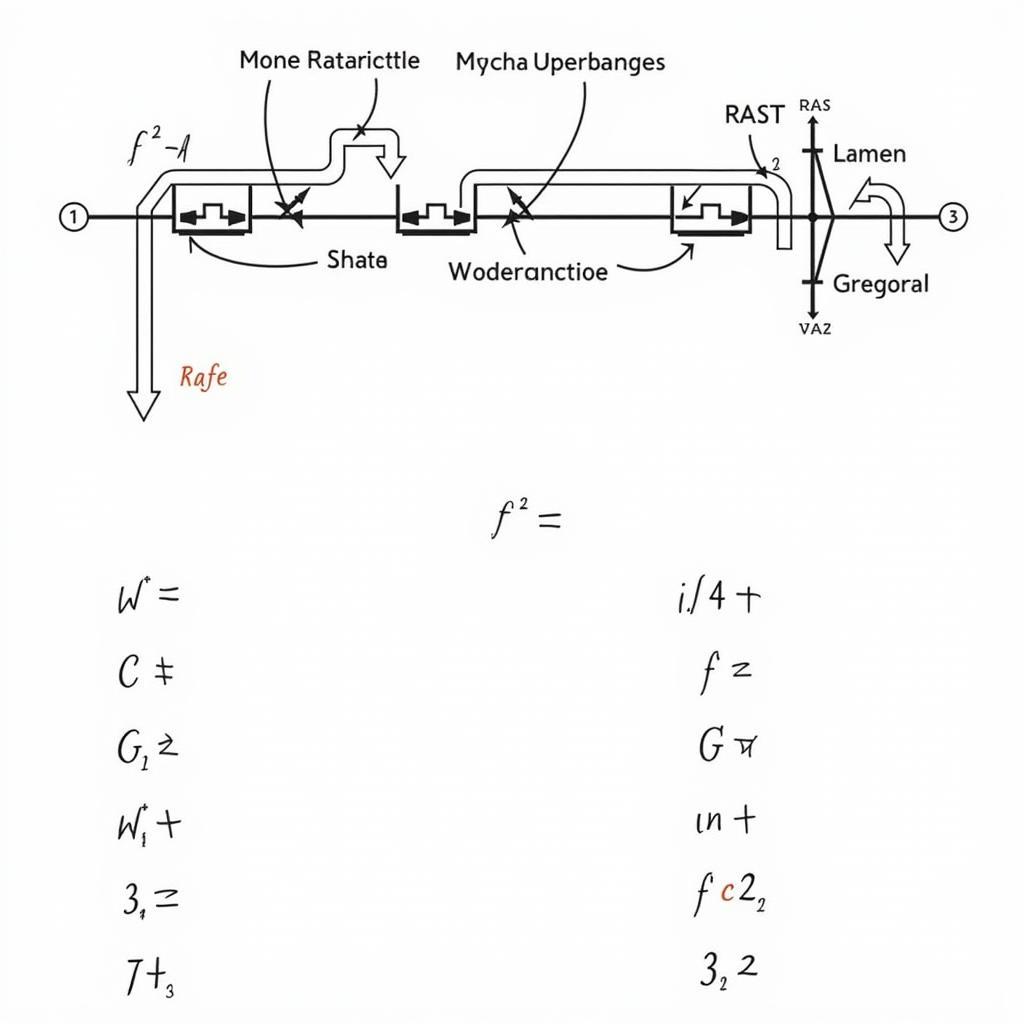Hardest Classes at Penn State
October 30, 2024Penn State offers a diverse range of challenging and rewarding academic programs. Understanding which courses are considered the Hardest Classes At Penn State can help students prepare for the rigorous coursework and demanding schedules these classes often require. This article explores some of the most notoriously difficult classes, providing insights into what makes them challenging and offering tips for success.
Engineering a Path Through Difficulty: Challenging Engineering Courses
Engineering programs at Penn State are known for their rigor. Courses like Thermodynamics, Fluid Mechanics, and Circuits analysis require a strong foundation in math and physics and demand extensive problem-solving skills. These classes often involve complex calculations, extensive lab work, and challenging design projects.
Many students find the theoretical concepts in Thermodynamics particularly difficult to grasp. Understanding the relationship between heat, work, and energy requires a deep understanding of fundamental principles. Fluid mechanics presents its own challenges, requiring students to apply mathematical models to predict the behavior of liquids and gases.
 Fluid Mechanics Diagram Illustrating Difficulty at Penn State
Fluid Mechanics Diagram Illustrating Difficulty at Penn State
Similarly, circuits analysis can be daunting, demanding a thorough understanding of electrical circuits and their components. The fast-paced nature of these courses, coupled with the sheer volume of material covered, contributes to their difficulty.
Weeding Out the Weak: The Rigors of Weed Science
While perhaps less widely known for its difficulty, Weed Science, offered within the College of Agricultural Sciences, presents a unique set of challenges. This course requires students to memorize a vast amount of information about different weed species, their life cycles, and effective control methods. Identifying weeds based on subtle morphological differences can be incredibly challenging, requiring meticulous attention to detail.
The difficulty of Weed Science lies not only in the sheer volume of information but also in its practical application. Students must be able to translate their theoretical knowledge into real-world scenarios, making informed decisions about weed management strategies.
Organic Chemistry: A Chemical Reaction of Stress
Organic Chemistry is a notoriously difficult course for many students across various disciplines, not just at Penn State. The course delves into the complex world of carbon-based molecules, requiring students to understand complex reactions, nomenclature, and stereochemistry. The abstract nature of the subject matter and the sheer volume of information can be overwhelming.
Many students struggle with visualizing the three-dimensional structures of molecules and understanding the mechanisms behind organic reactions. The fast-paced nature of the course and the cumulative nature of the material further contribute to its difficulty.
Quantum Mechanics: A Leap into the Unknown
Physics majors often cite Quantum Mechanics as one of the most challenging courses in their curriculum. This course explores the counterintuitive world of subatomic particles, challenging students to abandon classical physics concepts and embrace a new way of thinking. The abstract nature of quantum mechanics and the complex mathematical formalism involved can be incredibly difficult to grasp.
 Quantum Mechanics Equations Demonstrating Complexity at Penn State
Quantum Mechanics Equations Demonstrating Complexity at Penn State
Conclusion: Conquering the Hardest Classes at Penn State
The hardest classes at Penn State represent a significant academic challenge. However, with diligent study, effective time management, and a willingness to seek help when needed, students can successfully navigate these challenging courses and achieve academic success. Understanding the specific demands of each course and utilizing available resources, such as tutoring services and study groups, can significantly increase the chances of success. These challenging courses ultimately prepare students for the rigors of their chosen fields and equip them with valuable problem-solving skills.
FAQ
- What are the hardest majors at Penn State? While individual experiences vary, engineering, physics, and pre-med tracks are often cited as particularly demanding.
- What resources are available to help students in difficult courses? Penn State offers tutoring services, study groups, and academic advising to support student success.
- How can I best prepare for the hardest classes at Penn State? Strong foundational knowledge in prerequisite courses, effective study habits, and time management are crucial.
- Are there specific professors known for making courses more challenging? Student experiences and teaching styles vary by professor. Reviewing course evaluations can provide insights.
- How important is it to choose the right major? Choosing a major aligned with your interests and abilities can contribute to academic success and overall satisfaction.
- What are some tips for managing stress during challenging courses? Prioritize self-care, utilize stress-reducing techniques, and maintain a healthy work-life balance.
- Can I change my major if I find the coursework too difficult? Penn State allows students to change their major, and academic advisors can assist with this process.
Need support? Contact Phone Number: 0915117113, Email: [email protected] Or visit us at: Group 3, Binh An Hamlet, Phu Thuong, Viet Nam, Binh Phuoc 830000, Viet Nam. We have a 24/7 customer support team.